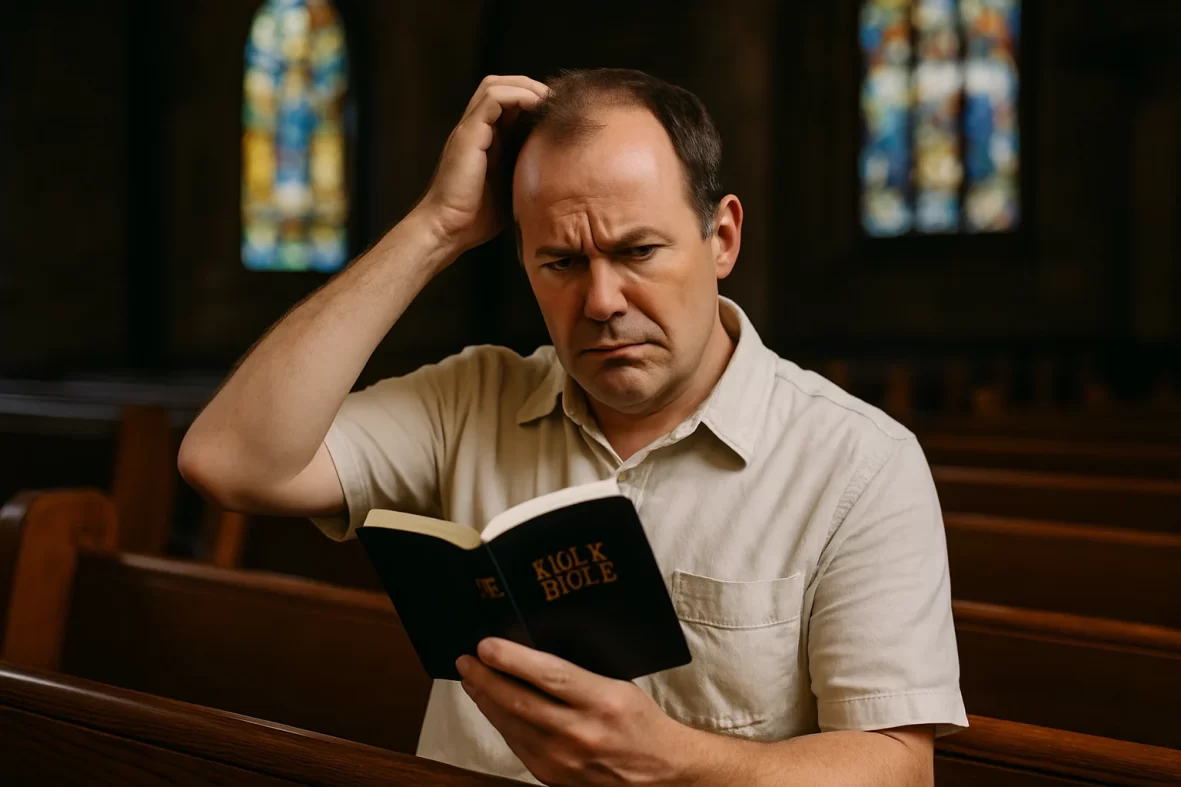Truth Matters, Part 2: A Response to Katherine Maher’s TED Talk
“Truth that is right enough, enough of the time, to be useful enough to enough people.”
– Katherine Maher, 2021 TED Talk
Well, that’s one way to define ‘truth.’
Or as your GPS might say: “Turn left at the consensus. Recalculating…”
In her TED Talk, Katherine Maher proposes that instead of clinging to dusty old concepts like objective truth, we should embrace something more flexible: “minimum viable truth.” Translation? Not truth that reflects reality, but truth that’s useful—like duct tape for the collective conscience.
This isn’t just semantic sleight of hand. It’s a total redefinition of what it means to know anything. In Maher’s view, truth isn’t a foundation—it’s a tool. Something we use to get along, not something we stand on when everything else shakes.
Let’s be honest: in a polarized, outrage-addicted culture, that kind of pragmatism sounds refreshing. It’s inviting. It even sounds… kind.
But here’s the rub: “kind” and “true” aren’t synonyms. And when we settle for truth that merely works, we often end up with ideas that don’t.
What on Earth Is “Minimum Viable Truth”?
Maher borrows from the world of product design, where a “minimum viable product” is the rough draft version of something that sort of works (think: beta apps that crash but still get funded). Applied to truth, it’s less about accuracyand more about agreement. Something not too fussy, just “right enough” to move forward.
This is a shift from correspondence theory (truth reflects reality) to consensus theory (truth reflects a quorum). It assumes that truth isn’t discovered—it’s negotiated. Not what is, but what enough people agree to pretend is.
That may fly in Silicon Valley. It does not fly in Scripture.
The Bible doesn’t deal in “mostly true.” It doesn’t hand out participation ribbons for close-enough theology. It anchors truth in the character of God, not the mood of the masses.
“The sum of Your word is truth, and every one of Your righteous judgments endures forever.”
—Psalm 119:160, LSB
Not some of it. Not when it’s trending. The sum. Forever.
Biblical Truth: Revealed, Not Crowdsourced
Maher’s idea makes sense—if you believe truth is created in conversation. But biblically, truth is not constructed, it’s revealed. It’s not something humanity invents—it’s something God declares.
“Sanctify them by the truth; Your word is truth.”
—John 17:17, LSB
That’s not posturing. That’s Jesus praying.
Wayne Grudem nails it:
“God’s truthfulness means that He is the true God, and that all His knowledge and words are both true and the final standard of truth.”
(Systematic Theology, 1994, p. 195)
This is not optional for Christians. The minute truth becomes a group project, God is demoted from Creator to consultant. Maher’s framework doesn’t just shift method—it shifts authority. And that’s not modesty. That’s mutiny.
Why “Agreed-Upon Truth” Can’t Carry Justice
Let’s entertain Maher’s idea. What happens when we let the crowd define truth?
Spoiler: bad things.
- Slavery? Once a social consensus.
- Segregation? Legally codified consensus.
- Genocide? Often marched in under the banner of “greater good.”
Francis Schaeffer saw it coming:
“If there are no absolutes by which to judge society, then society is absolute.”
(How Should We Then Live?, 1976, p. 224)
If truth bends to consensus, whoever holds the mic defines morality. And if we’re honest, the loudest voices aren’t always the wisest—or the most righteous.
Scripture anchors justice in God’s character, not trending hashtags:
“He loves righteousness and justice; The earth is full of the lovingkindness of Yahweh.”
—Psalm 33:5, LSB
If you want justice, you need truth. Not convenience. Not consensus. Truth.
When “Close Enough” Builds on Sand
Maher believes “minimum viable truth” will make society more stable. But the Bible disagrees.
“A double-minded man is unstable in all his ways.”
—James 1:8, LSB
Truth-lite doesn’t unite. It unravels. And when the storm hits (because it always does), truth built on consensus collapses like a beach house during hurricane season.
Jesus warned us not to build on sand. (Matthew 7:26) Katherine Maher recommends it—just pack it tight enough with shared assumptions and you’ll be fine.
Spoiler #2: You won’t.
C.S. Lewis called this bluff decades ago:
“We make men without chests and expect of them virtue and enterprise.”
(The Abolition of Man, 1947, p. 35)
In today’s terms: we cut the brakes and act shocked when the car doesn’t stop.
Where This Is Going (Hint: It Gets More Personal)
Maher’s approach—though subtle—isn’t new. It’s the lovechild of expressive individualism and postmodern soft relativism. Carl Trueman traces this philosophical drift in The Rise and Triumph of the Modern Self, showing how we traded external truths for internal authenticity.
What matters now isn’t what’s objectively true—it’s what’s true for you. And once truth becomes personal expression rather than divine revelation, everyone becomes their own prophet, priest, and king.
That may sound freeing. It’s actually isolating—and terrifying.
We’ll get into that in the next post. But for now:
Conclusion: Don’t Lower the Bar. Lift Your Eyes.
Minimum viable truth offers a tempting path of least resistance. But biblical Christianity was never about managing perceptions. It’s about proclaiming reality. We don’t gather around the lowest common denominator—we rally around the highest authority.
“Thus says the Lord…”
Not: “Thus says the algorithm.”
Truth isn’t an obstacle to progress. It’s the only way we move forward without losing ourselves.
So no—we’re not interested in “true enough.”
We’re after capital-T Truth. The kind you can build a life, a church, and a civilization on.
We trace the cultural roots of Maher’s worldview—how expressive individualism, critical theory, and the collapse of objective truth brought us here… and what the Bible says about getting back out.
Brace yourself. It’s going to get philosophical. And personal.








